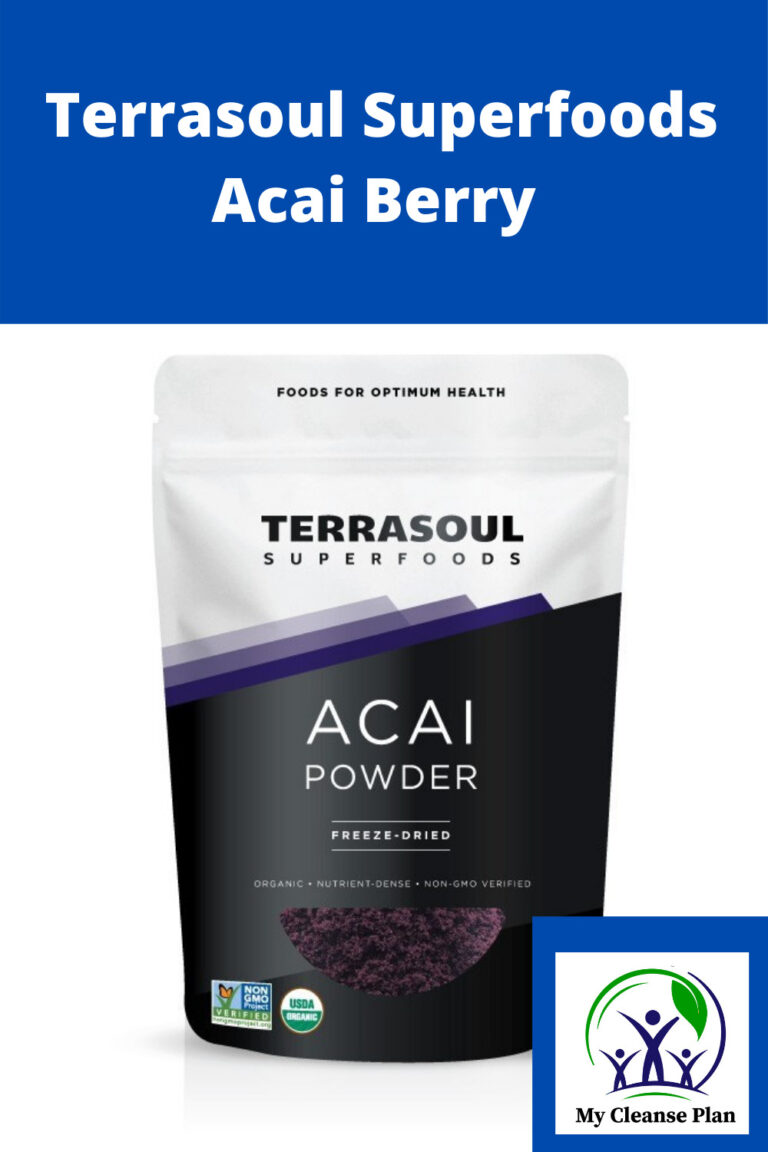What Is The Ornish Diet All About – More Than Just Great For Your Heart
A diet famous for preventing heart disease by minimizing the intake of fat, animal proteins, and refined carbs while maximizing the intake of unrefined plant-based food, is the Ornish diet.
In this low-fat vegetarian dietary routine, you are encouraged to replace refined carbohydrates with complex ones, and at the same time consume fat in limited quantities while avoiding animal proteins and processed food.
Along with nutrition, this diet goes further by incorporating regular exercise, stress management, and a social support system into one’s lifestyle to achieve optimal health.
What Is The Ornish Diet
The Ornish diet is a unique dietary and lifestyle program founded by Dr. Dean Ornish, clinical professor of medicine at the University of California, San Francisco, and creator of the Preventive Medicine Research Institute, Sausalito.
His motto is “feel better, live longer, lose weight, and gain health”.
The strategies used in the Ornish diet are effective for preventing and even reversing heart disease, preventing chronic diseases, lowering blood pressure, managing weight, and promoting optimal health.
Followers of the diet can cater the plan according to their goals, however, someone who is trying to reverse heart disease will naturally require bigger changes in their lifestyle, hence their diet plan will be slightly stricter than the regular prevention diet plan.
Ornish divides food into five groups, where group one is most beneficial to health and group five least. So, eat ample amounts of fibrous vegetables and fruits
(group one), and low-fat dairy instead of full-fat (group four).
Regarding exercise, emphasize aerobic activities, flexibility, and, resistance training. Manage stress through meditation, deep breathing techniques, and yoga.
Figure out which combinations work best for you and make sure to practice daily. Ornish also stresses social support from people you love, which affects one’s health positively.
Clear up a bit of your schedule and spend some quality time with your friends and family.
The factor that makes this program unique among hundreds of diet plans, is its scientific root.
Dr. Ornish backs his lifestyle program with hard-won science, his research and findings have been published in leading medical journals, for instance,
The Journal of the American Medical Association in 1983 & 1998, and The Lancet in 1990. They report an average improvement of over 300% in the heart and 2.5 times lesser cardiac events.

Principles and Practices
- Focus more on choosing food wisely and less on counting calories.
- Eat plenty of legumes, fruits, grains, and vegetables.
- Only 10 percent of daily calorie intake should come from fat.
- Avoid meats, oil, full-fat dairy, and sugar.
- Exercise regularly, manage stress, and receive social support.
- Reduce unhealthy practices such as drinking excess alcohol and smoking.
Best Type Of Exercise
The comprehensive lifestyle change program encourages participants to exercise aerobically a minimum of 30 minutes a day or for an hour every other day for a total of 3-5 hours of aerobic exercise per week. More intense exercise is allowed if medically appropriate and if desired by the participant. Resistive or strength training exercise is also crucial to maintaining health.
Health Benefits
Heart disease
An Ornish diet is undoubtedly wonderful for your heart, it has been proven that heart disease, beyond being stoppable, can also be reversed, without drugs or surgery, through changes in diet and lifestyle.
Dr. Ornish and his colleagues examined the ability of 48 patients in 1998, to sustain intensive lifestyle changes for a total of five years and the effects of these lifestyle changes on coronary heart disease.
Devotion to lifestyle changes, fluctuations in coronary artery percent diameter stenosis, and cardiac episodes were monitored.
The results produced by the experimental group displayed substantial improvements compared to the control group, whose condition worsened.
The prevention diet is advocated for otherwise healthy individuals with levels of LDL cholesterol greater than 150mg/dL or those with a ratio of total cholesterol to high-density lipoprotein (HDL or “good” cholesterol) that is less than 3.0
Diabetes
This diet can prevent and most likely control diabetes. Being overweight is one of the biggest risk factors for Type 2 diabetes.
If you need to lose weight and keep it off, and an Ornish diet helps you do it, you’ll almost certainly tilt the odds in your favor.
The diet can be tailored to ensure that the nutrition portion does not conflict with the doctor’s advice.
An analysis in the American Journal of Health Promotion cited that followers of the Ornish diet experienced a decrease of 0.4 percentage points after a year, in their hemoglobin A1C levels, which is a measure of blood sugar control.
Weight loss
Weight loss during the Ornish diet is gradual, the idea of rapid weight loss may seem attractive, but it actually results in unintended loss of lean body mass in turn slowing metabolism.
The Ornish program’s approach to weight management is adopting a healthy lifestyle where the combination of a low-fat diet and exercise results in weight loss.
Sugar, refined carbohydrates, and alcohol are reduced in the Ornish diet as they do not offer any nutritional benefits and often replace important nutrients needed to lose weight.
Half to two pounds of weight loss a week is the right place, during the initial two weeks you may undergo rapid loss due to a decrease in water weight in addition to fat.
Overweight and obese people run a higher risk of contracting the following chronic conditions and diseases:
- Coronary heart disease
- Stroke
- Type 2 diabetes
- Cancers – endometrial, breast, and colon
- Hypertension or high blood pressure
- Dyslipidemia – high blood cholesterol and triglycerides
- Fatty liver disease
- Gallbladder disease
- Sleep apnea and respiratory problems
- Osteoarthritis
- Gynecological problems for women – irregular menstrual periods and infertility
Tips For Healthy Weight Loss:
- Choose plant-based, low-fat, nutrient-rich foods instead of calorie-dense foods.
- Eat small, frequent, balanced meals and snacks throughout the day.
- Stay hydrated with water, not liquid calories.
- Practice mindful eating.
- Engage in fitness routines – minimum 30 minutes of daily aerobic exercise.
What Are The Results Of Dieting
Dr. Ornish’s research in the 1990s exhibited that his integrative lifestyle approach not only treats coronary artery disease but can also additionally stimulate the regression
of plaque in arteries.
A group of people who followed it for a year reversed arterial blockage by 10%, which should lead to a significant reduction in heart attacks and strokes.
In another study in the 2011 American Journal of Cardiology, people with diabetes or cardiac issues who followed the program for three months witnessed vital improvements in blood cholesterol, blood pressure, blood sugar, quality of life measures, and cognition, and even became angina free.
The Ornish lifestyle supposedly keeps prostate cancer at bay because the changes it causes keep prostate-specific antigen (PSA) levels low and even impact a tumor growth rate. people lost significant weight while following this program, mostly due to the drastic reduction in animal meat, oil, bad fat, and sugar.
Is The Ornish Diet Right For You And What Are The Risks
Young children, teenagers, and pregnant or nursing women should not follow this program because it’s too low in fat and if menus are ill-planned, the diet can be extremely low in calories, vitamin B12, and iron.
Minerals and vitamins are vital for proper cell metabolism.
Similar to other low-fat vegetarian diets, good (HDL) cholesterol drops along with bad (LDL) cholesterol on the Ornish diet, though this doesn’t adversely affect cardiovascular health.
It can be difficult to follow the diet long-term because it is extremely low in all types of fat, and not eating meats and sweets can increase hunger pangs making it harder to stick to the plan.
The Ornish diet is one of the most challenging diets, especially if you follow the reversal route, but the non-dietary elements which are exercise, stress reduction, and social support provide many benefits.
If you’re looking to improve the health of your heart and manage chronic conditions such as high cholesterol and blood pressure, obesity, type 2 diabetes, and certain types of cancer (prostate cancer) then this is the right fit for you.
People diagnosed with heart disease and high blood cholesterol levels, need not look further for the Ornish diet was voted number one best heart-healthy diets by the US news best diet ranking.
What To Eat
“Experience the joy of living, not the fear of dying” is the Ornish program’s approach to nutrition.
Food is neither good nor bad, but some are more healthful than others, the following food should be diet stapled because they are loaded with good carbs, good fats, good proteins, and other protective substances.
- Plants in their natural form- fruits, vegetables, whole grain, legumes, soy.
- Plant-based proteins- egg whites, tofu, tempeh, beans, non-fat yogurt, non-fat cheese.
- Green tea.
- Supplements – low-dose multivitamins and mineral supplements containing b-12 (without iron) and fish oil.
Only 10 percent of the daily calorie intake should come from fats. Since certain nuts and seeds are rich in antioxidants and heart-healthy omega-3 fatty acids, they are added to the diet in limited serving sizes. The following foods can be consumed but in moderation.
- Non-fat dairy products.
- Soy milk.
- Nuts – Almonds, pistachios, walnuts, pecans, cashews, and peanuts.
- Seeds – flaxseeds, sunflower, and pumpkin seeds.
- Fish.
What To Eat Less
The low-fat Ornish diet can be customized according to your health goals, so if you are going for the more flexible prevention lifestyle the following foods can be consumed in moderation, but for the reversal diet, these foods should be avoided.
- Meat – both red and white.
- Processed foods – potato chips, pre-packaged food, packaged pastries, ice cream, sausages, burgers, etc.
- Oil and produce containing oil- avocado, olive, full-fat dairy, coconut.
- Caffeine- allowed but not encouraged.
- Alcohol- allowed but not encouraged.
- Bad carbs- refined carbs, sugar, concentrated sweeteners, white flour, and rice.
Meal Plan
The following sample meal plan has been provided officially by the Ornish lifestyle society.
It covers all the nutritional requirements while being delicious and cost-saving at the same time. Spice up each day with a brand-new menu containing the staples.
Sunday
- Breakfast: Whole-grain cereal with fat-free yogurt and orange juice
- Lunch: Baked potatoes stuffed with fat-free cheese and spinach and broccoli; potato salad with fat-free dressing, or a green salad with fresh fruit
- Snack: carrot sticks with hummus and garden green smoothie
- Dinner: Bread with tomatoes and capers, whole-meal pasta with vegetables, and peaches in wine for dessert
Monday
- Breakfast: egg-white vegetable scramble, berries, 1/2 cup of non-fat milk, and 1 slice of whole-grain bread
- Lunch: roasted tomato soup, Asian noodle salad topped with grilled shrimp, 1 slice of whole-wheat peach griddlecake
- Snack: 2/3 ounces dark chocolate, apricots, almonds, plain non-fat yogurt
- Dinner: Wild salmon, butter lettuce/pear salad with honey-infused vinaigrette, sweet corn, black bean, and tomato salad, peach bread pudding
Tuesday - Breakfast: Egg White & Vegetable Frittata, Garlic Roasted Potatoes, Strawberries
- Lunch: Field Green Salad with Balsamic Vinaigrette, Quick Lentil Chili, Cornbread, Sliced Cucumber, and Carrots, Hummus
- Snack: Non-fat plain Greek yogurt, peaches, low-fat granola
- Dinner: Leafy green salad with Italian Dressing, Spinach & Mushroom Lasagne, Roasted Asparagus, 1 Cocoa Truffles
Wednesday - Breakfast: egg-white zucchini frittata, blueberries, strawberries, and blackberries, whole-grain bread, 1 cup of tea or decaf coffee
- Lunch: mango-beet salad, vegetarian chili, 1 slice of cornbread
- Snack: Spicy Bean Dip with Baked Corn Chips
- Dinner: fennel and arugula salad with fig vinaigrette, whole-wheat penne pasta with roasted vegetables, a fruit-and-yogurt trifle
Thursday - Breakfast: Apple-cinnamon spiced Oatmeal, sweet corn
- Lunch: Reversal Salad, Black Bean Burrito, Fresh fruit
- Snack: green pea guacamole, whole-wheat pita bread wedges, red grapes
- Dinner: Asian Stir-fry of mixed vegetables, garbanzo beans or tofu, brown rice soy sauce, and Asian curry.
Friday - Breakfast: Apple Spice Muffin, Non-fat Greek Yogurt with Orange Zest, Blueberries
- Lunch: Coleslaw, Black Bean Veggie Burger patty, Sweet Potato Fries
- Snacks: Green Smoothie with Pineapple and Mint, Creamy Pesto Dip with Vegetables
- Dinner: Arugula Salad with Beets & Oranges, Mushroom Stroganoff, Rainbow Vegetables, Chocolate Pudding with Raspberries
Saturday - Breakfast: Tofu Scramble, country Sweet Potatoes, Sliced Melon
- Lunch: Confetti Citrus Salad, Smokey Bean Tacos with Corn, Edamole with Smokey Chipotle Sauce
- Snacks: Sweet Pea Herb Dip with low-fat whole-grain crackers, Seasonal Fruit Parfait
- Dinner: Field Green Salad with Lemon Miso Dressing, Thai Vegetable Curry, Brown Jasmine Rice, Minted Pineapple
Explore Also:
Creativehouseblog
Dietsheriff
Gigasecurehome
Final Thoughts on The Ornish Diet
Now you should have a better understanding of what the Ornish Diet is all about.
I have given you a little about how the diet came about, the reasons why it was created, and some of the health benefits that you can gain from following Dr. Ornish’s Diet.
Dr. Ornish has written several books to help you start your diet out the right way.
As always, if you have any concerns about trying a diet, consult your doctor first.
Here is a PIN to share with your friends on Pinterest:














I have a few people in mind that definitely need to give this diet a go. It’s a shame this diet isn’t more popular because so many people could benefit from it
The Ornish Diet has a lot of potential for many people. When I read the book, it is a nice and simple approach, without overly complicating things. It’s a great read, even if you only take one idea from it and use it.